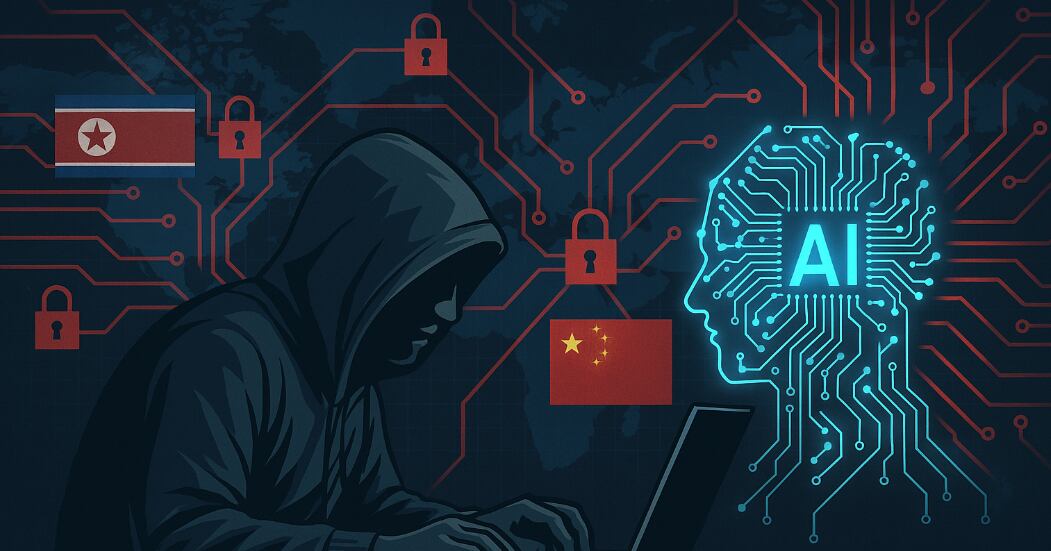- Cyber Safety
- Posts
- 🚨 £3.4B Gone, AI Agents & Crypto Scams
🚨 £3.4B Gone, AI Agents & Crypto Scams
AI-powered Computer-Using Agents (CUAs) are redefining the cybersecurity threat landscape by automating identity-based attacks with speed and precision.
Unlike traditional bots, CUAs mimic real user behavior—logging into apps, navigating dashboards, and evading common defenses like CAPTCHA and MFA.
• Automated Reconnaissance: CUAs identify SaaS platforms, login portals, and authentication methods at scale, preparing massive credential-stuffing campaigns in minutes.
• Scalable Access & Persistence: Once inside, CUAs create hidden access points like API keys or backup logins that often go undetected.
• Lateral Movement & Data Theft: CUAs exploit OAuth and SSO settings to expand their reach, exfiltrating only high-value data for stealthy breaches.
• The Next Phase of Threats: Even low-skill attackers can now deploy plug-and-play CUAs, raising the stakes for defenders.
Organizations must adopt a Zero Trust model, enforce MFA, and gain visibility into SaaS activity to counter this rising threat. CUAs are just getting started—and security strategies must evolve fast.

Small and medium-sized enterprises (SMEs) are facing a staggering threat from cyberattacks, losing an estimated £3.4 billion annually, according to recent research by Vodafone. The findings underscore alarming trends that highlight the vulnerabilities of SMEs:
• Growing Businesses at Risk: 80% of companies with over 50 employees have experienced a cyberattack—four times more than smaller firms.
• Lack of Training: Over half of SMEs (52%) report having received no cybersecurity training, making them prime targets.
• AI-Driven Threats: With AI lowering the entry barrier for cybercriminals, SMEs are increasingly worrying about sophisticated attacks.
As these losses threaten their survival, Vodafone calls for urgent government action to address the cybersecurity gap.
Offering grants, tax incentives, and support for training could safeguard these businesses, ultimately promoting economic resilience.
Now is the time for SMEs to prioritize cybersecurity—it's not just about protecting finances; it’s about ensuring their long-term viability!

In a chilling escalation of cyber warfare, North Korea and China are ramping up AI-driven cyber attacks that threaten to disrupt key sectors globally.
These advanced cyber threats are not just wreaking havoc; they're evolving rapidly, showcasing the growing sophistication of malicious actors.
Here are some critical highlights from the article:
• Targeted Sectors: Major industries like finance, healthcare, and infrastructure are under siege.
• AI Utilization: Attackers leverage AI to enhance their strategies, making breaches harder to detect.
• Global Impact: The repercussions of these cyber assaults extend far beyond national borders, affecting economies worldwide.
As these state-sponsored hackers refine their methods, the urgency for robust cybersecurity measures intensifies.
Organizations must stay vigilant to fend off these emerging threats and protect vital systems from potential destruction. The battle against cybercrime is more crucial than ever!

A new malicious campaign named PoisonSeed is making waves in the cybersecurity world by exploiting CRM accounts to launch cryptocurrency seed phrase poisoning attacks.
This strategy involves compromised credentials from CRM tools and bulk email services to send deceptive spam messages designed to steal victims' digital assets.
Key highlights include:
• Targeted Entities: PoisonSeed preys on both enterprise organizations and individual users, particularly within the crypto sphere like Coinbase and Ledger.
• Phishing Tactics: Attackers create lookalike phishing pages to capture user credentials, ensuring ongoing access even if passwords are reset.
• Execution Method: After obtaining lists from compromised accounts, they disseminate spam urging victims to set up faux wallets using embedded seed phrases.
As these cybercriminals become more sophisticated, vigilance among users and organizations is crucial to safeguard against such threats.
